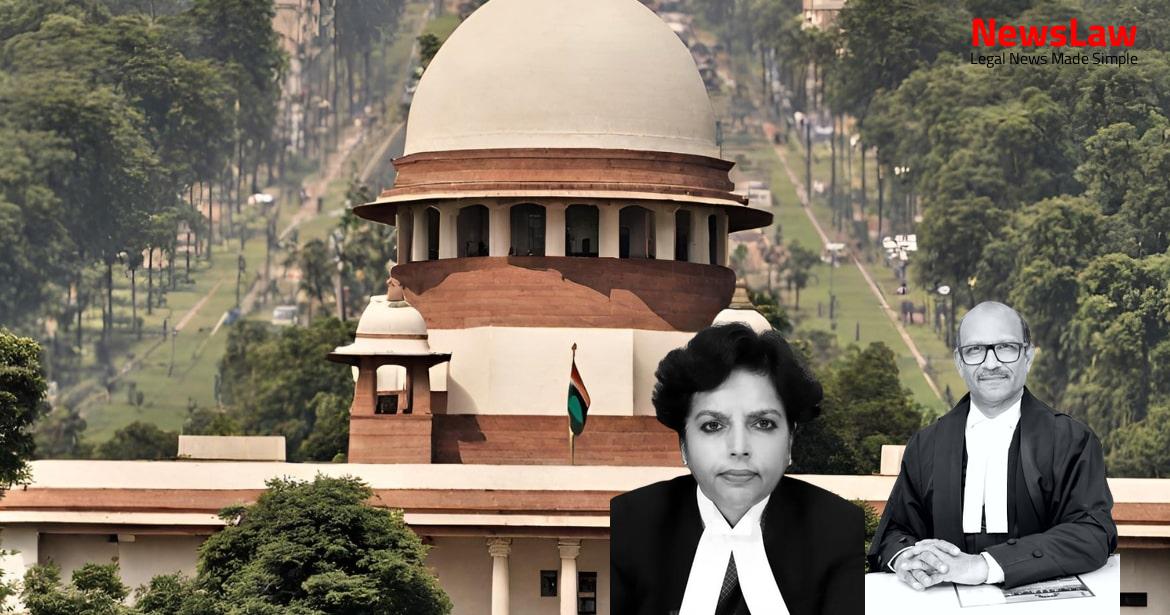In the case of Oil and Natural Gas Corporation Limited vs Petroleum Coal Labour Union and Others, the Gujarat High Court has ruled on the regularization of 577 term-based employees appointed between 1991 to 2001. The petitioner, Petroleum Coal Labour Union, argued for the regularization of these employees from their initial appointment dates or completion of probation. The Single Judge partially allowed the writ petition, granting appointment as per the union’s request. The case delves into the complexities of employment law and the rights of employees in the industrial sector.
Facts
- The Industrial Tribunal at Ahmedabad directed regularization of some services of the 577 workmen.
- The Employees Union appealed to the High Court seeking appointment of the workmen from their initial appointment date or completion of probation.
- A learned Single Judge of the Gujarat High Court partially allowed the writ petition by granting appointment as per the Union’s request.
- The pending candidates are entitled to relief in this case
- They should be considered for regular appointments by the 1 parties
Also Read: Legal Analysis of Property Occupation in Insolvency Resolution
Arguments
- Respondent-ONGC appointed 577 term-based employees between 1991 to 2001.
- The appointments were made without public advertisement in newspapers.
- The appellant-Union demanded regular appointments for these employees.
- The petitioner argues that their regularization should be from the date of initial appointment/completion of probation, not from 24.01.2005.
- They challenge the decision of the Single Judge in granting notional benefits instead of actual benefits from the said date.
- The petitioner believes that regular pay and allowances should have been given from 01.04.2013 based on the decision date of the Special Civil Application.
- Reference is made to the case of Oil and Natural Gas Corporation Limited vs Petroleum Coal Labour Union and Others (2015) 6 SCC 494, which supports the petitioner’s argument for regularization.
- There is a distinction made between this case and the ONGC case based on the specific directions given in the Industrial Tribunal’s Award.
- The Additional Solicitor General argues that the Single Judge’s decision on regularization is in accordance with the law and cannot be given retrospectively on actuals.
Also Read: Legal Analysis on Physical Ability in Rape Case
Analysis
- Various writ petitions and appeals had unsustainable legal grounds due to the misapplication of Section 25-B of the Industrial Disputes Act.
- The respondents approached the Court long after regularization, unsettling the settled position and affecting other employees’ rights.
- On factual analysis, employees recruited as conductors were regularized within a reasonable time frame.
- The judgment in this case did not establish any law regarding entitlement to regularization.
- The employees were treated fairly and no service rule or regulation was presented to claim regularization from an earlier date.
- The judgment depended on its unique facts and the interpretation of Certified Standing Orders of the Corporation.
- Certain appointees were excluded from relief based on specific criteria such as termination, resignation, or completion of tenure.
- In this case, the only irregularity was the lack of public advertisement for appointments, meeting all other employment conditions.
- This judgment is pending consideration by a larger Bench as of the reference order.
- The direction to not invite fresh applications for regular posts until term appointees are given regular appointments was quashed.
- The concerned workmen in the case did not have to undergo further recruitment examinations as they were appointed following proper procedures.
- The respondent Corporation was directed to grant notional benefits to the concerned workmen from a specific date.
- No costs were awarded in the ruling, and the rule was discharged with no further orders needed.
- Two Letters Patent Appeals filed were dismissed based on the same judgment.
- Vacancies were initially advertised, appellants had no substantive right against the notified vacancies
- Applying principles in State of Karnataka vs. Umadevi (2006) 4 SCC 1, appellants cannot seek regularization with retrospective effect from 2002 as regularization policy was not in vogue at that time
- Greater Noida Industrial Development Authority and Others (2015) 14 SCC 382 involved a policy decision to regularize services of 27 contractual employees in 2003 approved by Government in 2008, appellants appointed on 06.08.2010
- Once the four year period expired, employees collectively approached the Central Government through their Union.
- The Central Government, using its powers under the Industrial Disputes Act, referred an industrial dispute on 21.12.2004.
Also Read: Legal Analysis on Admissions and Document Consideration in Insolvency Case
Decision
- The Corporation must treat the concerned workmen, including 111 out of 577 employees who were regularized earlier, to be in regular employment from the date the industrial dispute was referred i.e. 21.12.2004.
- Grant all actual benefits to the concerned workmen from the said date till 01.04.2013.
- The directions given by the Single Judge remain intact.
- Rule is made absolute with no order as to costs.
- Special Civil Application No. 16777 of 2012 is dismissed.
- Regular pay and allowances to be given effect from 01.04.2013.
- The parties are directed to undertake the exercise of giving regular appointments to the appointed term-based employees.
- In case regular salary is being paid to the concerned workmen as per the interim order of the Court, no recovery shall be effected by the Corporation.
- The award of the Labour Court is modified accordingly.
- The Corporation can initiate recruitment action for remaining vacancies after absorbing the concerned workmen.
Case Title: ONGC EMPLOYEES MAZDOOR SABHA Vs. THE EXECUTIVE DIRECTOR BASIN MANAGER, OIL AND NATURAL GAS CORPORATION (INDIA) LTD. (2020 INSC 181)
Case Number: C.A. No.-001570 / 2020



